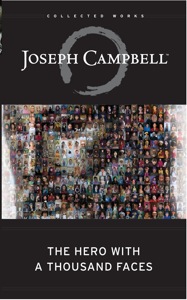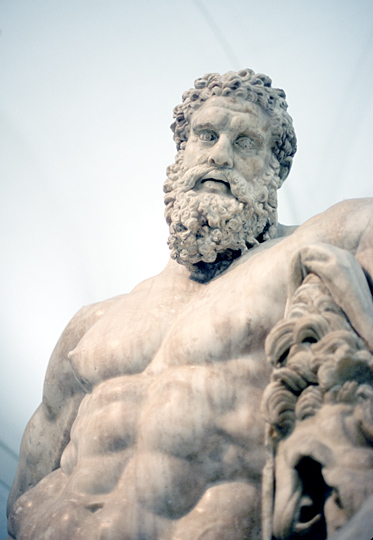 By Scott T. Allison and George R. Goethals
By Scott T. Allison and George R. Goethals
Ironically, the first published psychological analysis of heroism wasn't completed by a psychologist. In 1949, Joseph Campbell, a comparative mythologist who studied medieval literature and world religions, wrote a remarkable book called The Hero of a Thousand Faces. The volume became one of the most widely read and influential books of the 20th century.
While studying hero myths from around the world, Campbell noticed a distinct pattern. It didn't matter where or when a particular myth was created; the world's hero stories were all strikingly similar to one another. According to Campbell, in these stories "a hero ventures forth from the world of common day into a region of supernatural wonder: fabulous forces are there encountered and a decisive victory is won: the hero comes back from this mysterious adventure with the power to bestow boons on his fellow man." Campbell proposed that this prototypical heroic journey, which he called the hero monomyth, consists of three parts: departure, initiation, and return.
The departure phase involves the set of forces that set the hero's journey in motion. The hero is thrown from the safety and comfort of the familiar world into a dark, dangerous place.  Often a guide or a sidekick offers assistance. The initiation stage features a series of tests or challenges that the hero must overcome. Temptations of the flesh, or a battle with a father figure who must be vanquished, are quite common. Upon returning, the hero brings a great boon, or benefit, to the world. Not only is the returned hero forever transformed, so is the society that receives the boon.
Often a guide or a sidekick offers assistance. The initiation stage features a series of tests or challenges that the hero must overcome. Temptations of the flesh, or a battle with a father figure who must be vanquished, are quite common. Upon returning, the hero brings a great boon, or benefit, to the world. Not only is the returned hero forever transformed, so is the society that receives the boon.
In The Hero With a Thousand Faces, Campbell discusses the psychological importance of the hero's path. He argues that the hero's journey is a metaphor for the human experience. All people undergo painful struggles and must muster the strength and cleverness to overcome adversaries and difficult circumstances. The struggle defines us because it allows us to realize our full potential via triumphant redemption. "The adventure of the hero is the adventure of being alive," noted Campbell. "It is by going down into the abyss that we recover the treasures of life.  Where you stumble, there lies your treasure€¦. Opportunities to find deeper powers within ourselves come when life seems most challenging."
Where you stumble, there lies your treasure€¦. Opportunities to find deeper powers within ourselves come when life seems most challenging."
Campbell suggests that we identify strongly with the hero story because it taps into an important part of our collective unconscious. First described by psychoanalyst Carl Jung in 1916, the collective unconscious is a storehouse of latent images that have developed through human evolution. Jung called these latent images archetypes, which can be activated, or made conscious, when something in an individual's experience resembles the image. Archetypes are based on our collective experience over the course of evolution, rather than individual experience. Jung wrote, "There are as many archetypes as there are typical situations in life. Endless repetition has engraved these experiences into our psychic constitution."
The hero archetype, then, can explain the pervasiveness of the hero monomyth found in human societies across time and geography. Human beings, in effect, may have a biological readiness to encounter heroes and to resonate to hero stories that fit the Campbellian monomythic structure. George Lucas, the creator of Star Wars, admits that he based the characters and plot of Star Wars on the hero monomythic structure he encountered in The Hero With a Thousand Faces. Disney movies such as Aladdin, Beauty and the Beast, and The Lion King are said to have been influenced by Campbell. Musical artists such as Bob Dylan, Jim Morrison, and Jerry Garcia of the Grateful Dead have all produced work based on Campbell's hero monomyth.
For his enduring impact on the way we think about human experience and the hero's journey, Joseph Campbell is one of our intellectual heroes. Read more in Heroes: What They Do and Why We Need Them.


